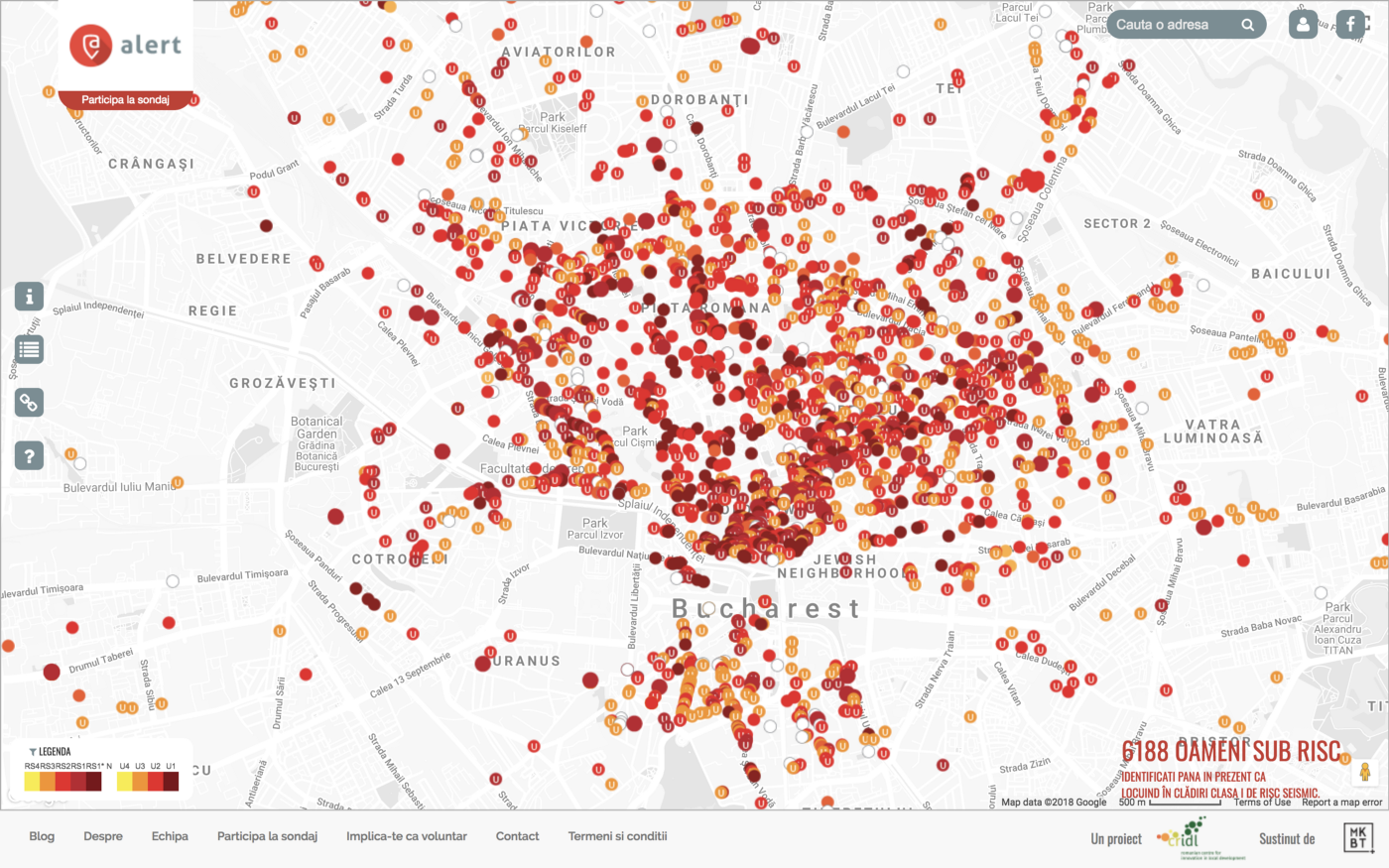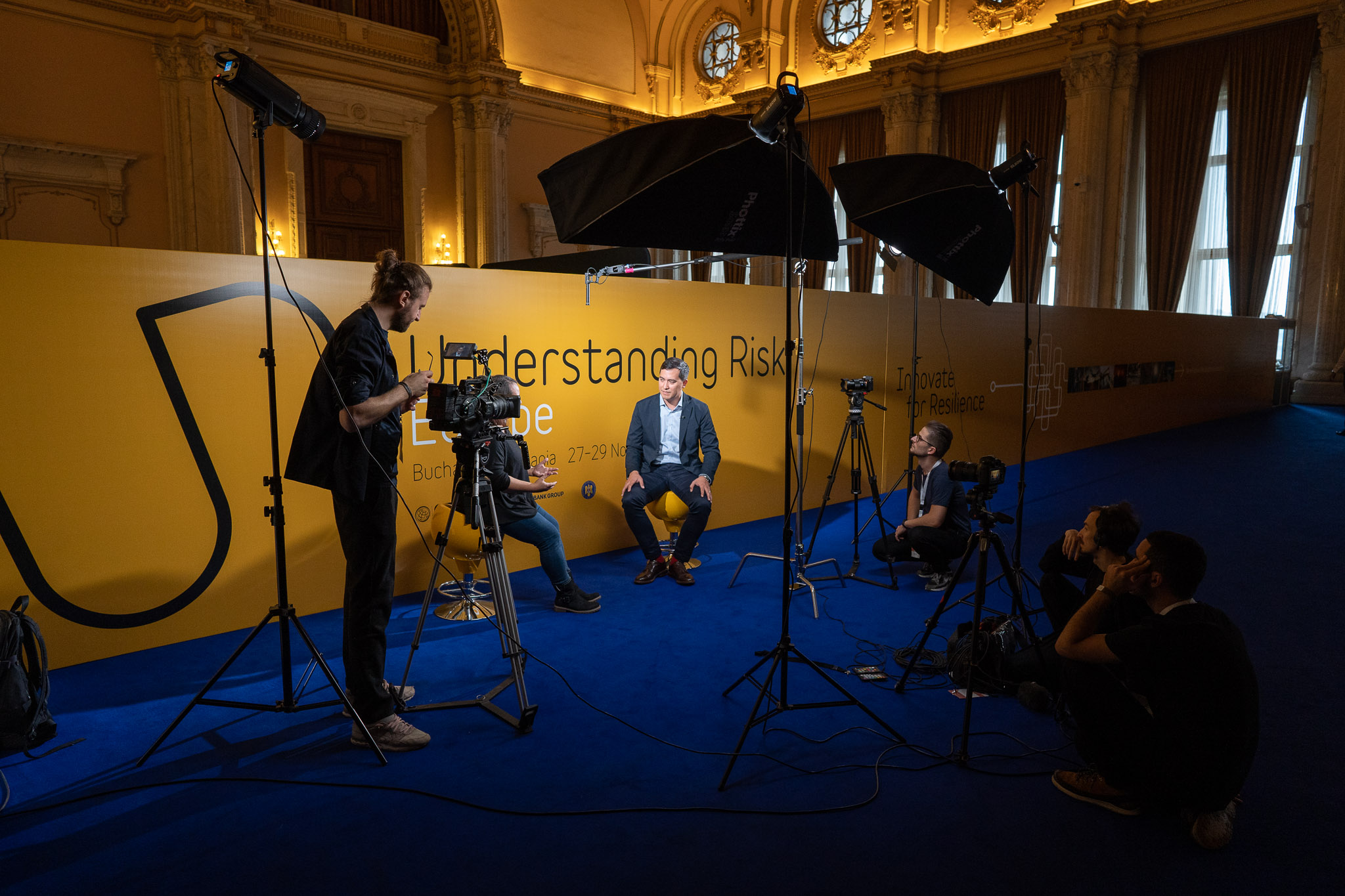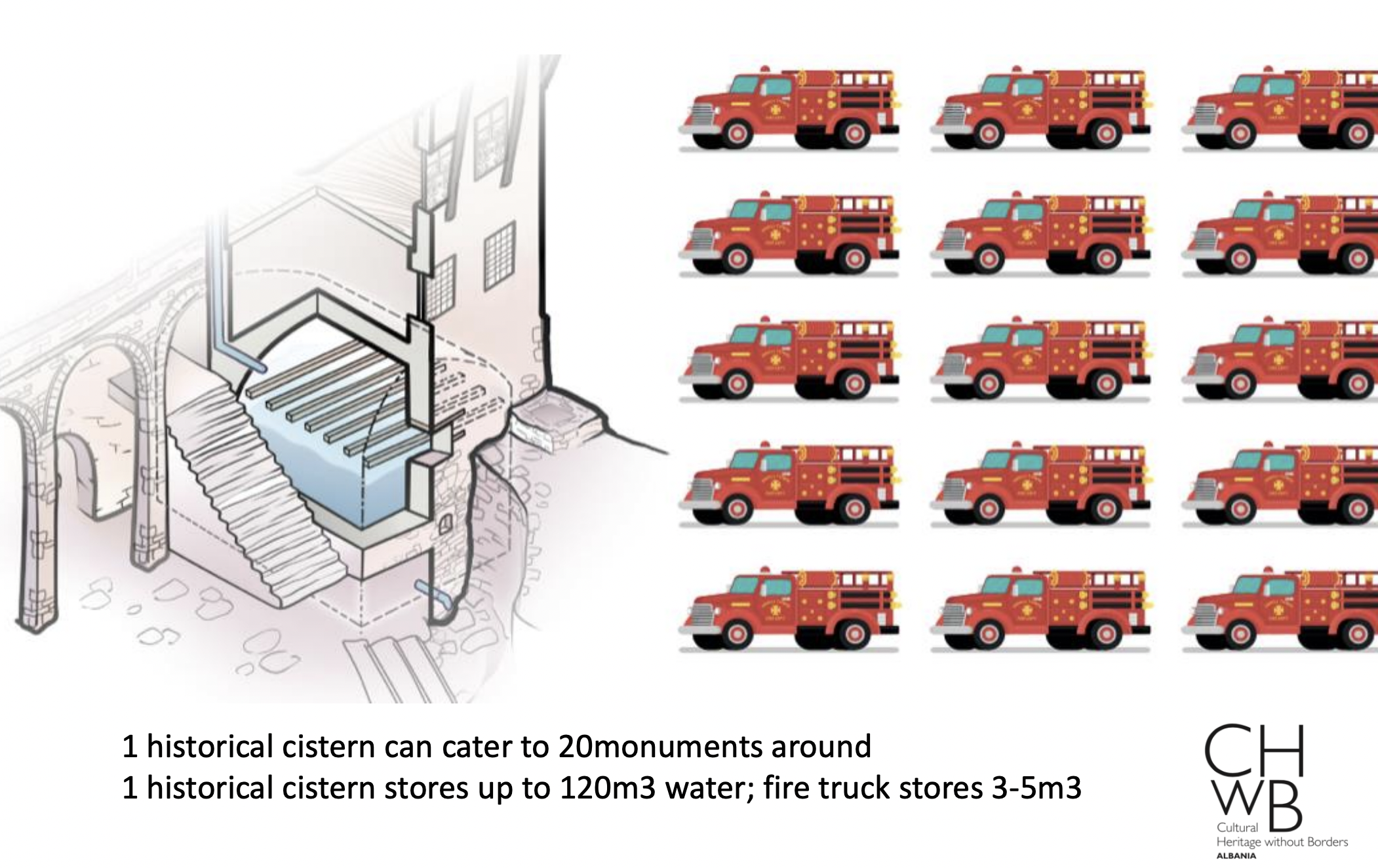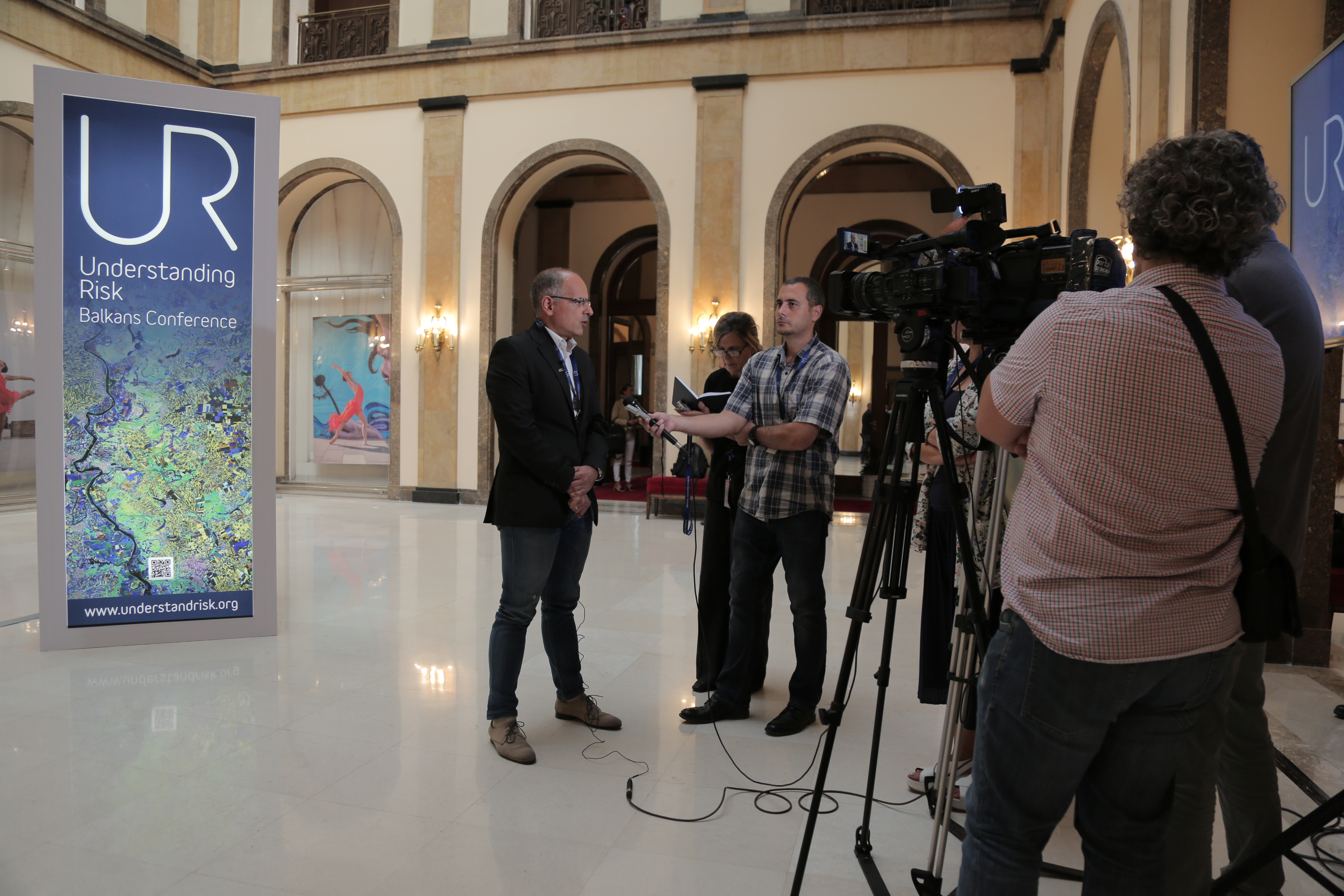Learning from Emerging Innovators in Romania and Albania
Understanding Risk (UR) events bring together experts from different countries to explore how technology and innovation can help create more resilient societies.
During recent UR events, I had the pleasure to sit down with Olivia Vereha (from Code for Romania) and with Lejla Hadzic (from Cultural Heritage without Borders - Albania) to discuss promising innovations emerging in Romania and Albania that can better support local communities in the event of disaster events, with a particular emphasis on risk communication and local preparedness.

Seismic Alert is one of Romania’s first disaster prevention web apps.


In Albania, CHwB is piloting a solution to reduce fire risks in old historic centers by revitalizing water cisterns as firefighting assets. Some of these cisterns can hold 15 times more water than the capacity of a single fire truck.

"Coding together for a more resilient Europe"
Interview with Olivia Vereha at UR Europe
Bucharest (Romania), Nov. 2019
Situated only 170 km from the Vrancea seismic zone, and hosting a population of almost 1.8 million, Bucharest (Romania), has the highest seismic risk of any EU capital.
Code for Romania, a civic tech community, has been developing a new app which will enable the government to better channel resources and coordinate volunteers in the event of a major disaster or crisis to increase community resilience levels.
In this interview, Olivia Vereha, Co-founder/Chief Operations Officer for Code for Romania, explains at UR Europe how exploring different types of tech-enabled partnerships between government and civil society actors are key to build a culture of safety and reliance.
"The healing power of cultural heritage"
Interview with Lejla Hadzic at URBalkans
Belgrade (Serbia), Sept 2018
In Albania, the most recurrent hazards are floods, fires, and earthquakes. Its cultural heritage buildings are particularly vulnerable to disasters, and Cultural Heritage without Borders (CHwB) has been leading efforts to strengthen at-risk cultural heritage sites and more broadly to reduce the impact of natural hazards on local communities.
In this interview, Lejla Hadzic, Executive Director of ChWB Albania, explains at URBalkans how cultural heritage can help people and communities heal and recover faster in the aftermath of disaster.